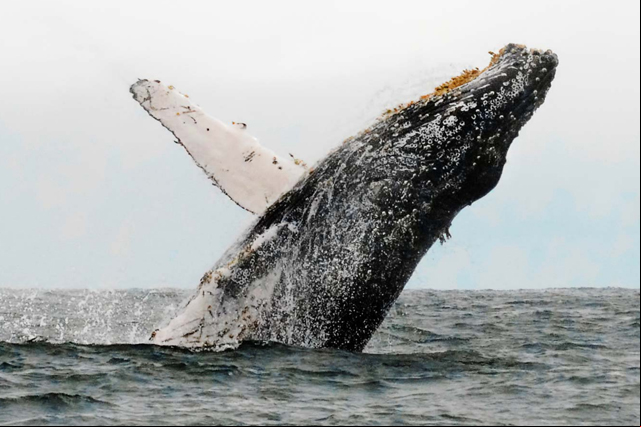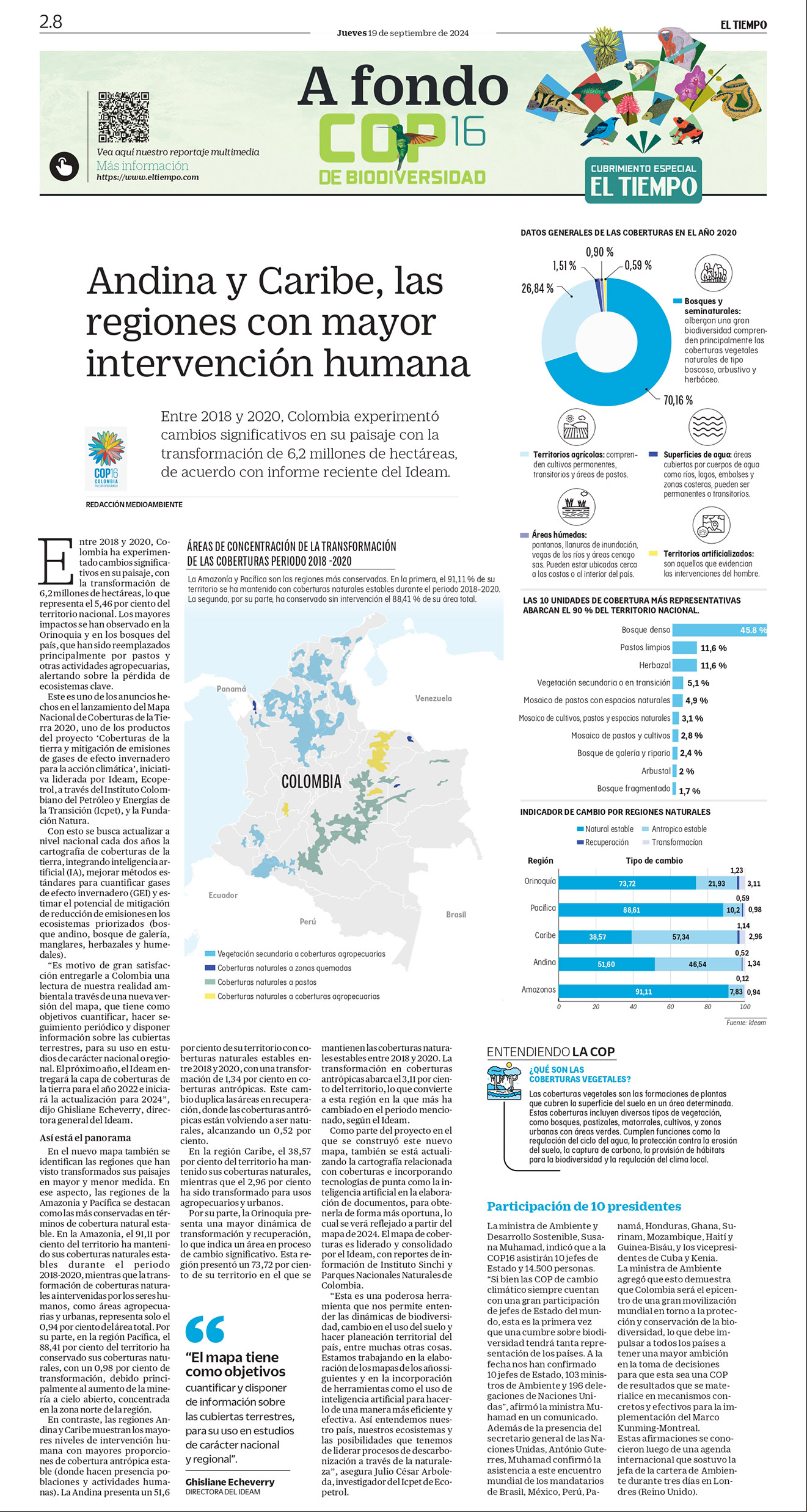You pointed out that there are three key points that must be a priority for COP16 to be a success: financing, the Biodiversity Action Plans, and the benefits of genetic information, which is a very new issue in which Colombia wants to be a leader. Why do you think these three points are so important?
The agenda for COP16 in Cali is very long, so one of the things that needs to be done is to prioritize. I said to Minister Susana Muhamad: In 10 years, when we look back at COP16, what will define it as a success? And it will not be how many people went, but what decisions were made. And it seems to me that the three key issues are the ones I mentioned. The first is to take the global agreement that came out of Montreal with these global goals and translate them into the national plans, which have to be ambitious and concrete. The second point that has been identified is that in order to implement these national plans, financial resources are needed, as well as scientific and technological cooperation, and in this sense there are very specific funding targets. So we have to look for ways to mobilize additional resources, because this is not only about international cooperation, this is about the commitment of governments, like Colombia's, and not only of the environmental sector, but also of other sectors, to really invest and implement these goals. And the third one, as you say, is something new, it is something very interesting, but which I think has a very great potential, and it is this issue of digital genetic information, which could help with the financial, but it is one of the approaches that many people have not focused on. For me, it could be the great opportunity of COP16 if we could get a global agreement on this, which would probably be what defines COP16.
How should Colombia set an example at COP16?
I think the first thing that needs to be done, and I know you are working on this, is to come up with a revised, updated, ambitious and clearly cross-sectoral Biodiversity Action Plan, because sometimes the difficulty is that we think that the problems and the solutions come from the environment sector, and we know that it is something that is cross-cutting, it has to do with the infrastructure sector, it has to do with the mining sector, it has to do with the agriculture sector. It really has to be something that cuts across and touches the different sectors that are working in the country. I know that they have been working on this for several months, I have not seen, I am not participating, I do not know the draft of this document, but I believe that Colombia has to take the lead, that is to say, here we are with this proposal and this is what Colombia is going to implement.
Let's talk about resources and financing: the world is not providing the resources needed to address the climate crisis. Is there any chance of that changing?
I think so, in fact I mentioned during the conference a study that was done a couple of years ago by the Paulson Institute, which is probably the best research there is on this, and they estimate that there is a biodiversity funding gap on the order of $700 billion a year. That's a huge number. But if you look at it, of that $700 billion, $500 billion is subsidies that we need to get rid of. So it is not new money, it is resources that need to be removed. And we are talking about subsidies in the developed world for things like fishing, agriculture, forests, things that are currently leading to the destruction or over-exploitation of natural resources. So one of the key measures, which is one of the goals of the global framework, is specifically to show progress in eliminating these subsidies. This is more of an issue for Europe and the U.S., it is not as big an issue for Colombia, but it should be looked at. And that leaves about $200 billion that is needed to implement the Global Framework. Most of these resources will have to come from national budgets. About 20 to 30 billion dollars, depending on when you look at it, should come from international cooperation, that is 10 to 15 percent of international cooperation. And philanthropy can help, but it cannot, it does not have the capacity to fill that gap, nor is that its role. What we can do is new ideas, move much faster than bilateral cooperation, we can make very important and strategic investments. And I believe that in the case of Colombia, one of the investments we have made is the Herencia Colombia project, where we have invested 20 million dollars to help generate this, and where there are resources from the national budget, multilateral resources. This will mean more than 200 million dollars for the national parks of Colombia.
Today, NGOs and other entities are doing very relevant work in of data, but here in Colombia, for example, many experts believe that these organizations and we in journalism are notaries of destruction and are not raising our voices enough. Do you think we are raising our voices enough in of conservation and restoration?
I believe that Colombia has a very strong environmental sector, very robust, with very strong roots that go back to the time of the Natural Resources Code, and fortunately we are talking about several generations of leaders who have been committed to this. The difficulty is how do you get a greater awareness of environmental issues and problems and solutions beyond the environmental sector. I think a large part of the population is still not clearly aware of that. I when I announced that I was going to study biology, we are talking about many years ago, and in my family half the people said to me, "You are going to die of hunger, why are you going to study that, what are you going to do? Well, look, we are dealing with a fundamental issue for the planet. So I hope that COP16 will serve to give more visibility to the issue and that Colombians will recognize the great opportunity and responsibility that we have.
EDWIN CAICEDO
Environment and Health Journalist
@CaicedoUcros






















